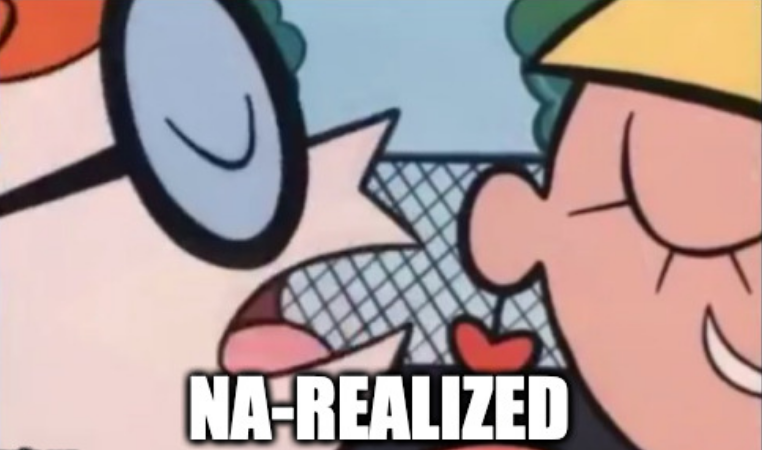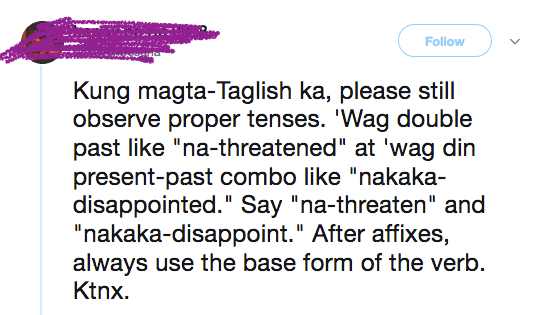What is something sad and funny at the same time? It’s seeing people “past tense” the hell out of all the English words they could think of.
Whether you’re a grammar nazi or not, you’ve probably seen this particular type of bastardization of the English language on your social media feed.
There’s even a Facebook page solely dedicated to showcasing this particular fascination for the past tense.

The most popular ones that probably made you LOL and facepalm at the same time were terms like “na-realized,” “na-surprised,” and our all-time favorite “wonned.” But the application and (im)proper usage are endless—there’s no word that cannot be put into past tense, no sentence that cannot be brutally murdered.
Seriously, there is such a thing:
And our favourite to date (although not related to tenses but just too damn good to be left out):
It’s hilarious, yes, but it’s depressing at the same time for obvious reasons. While mastery of the English language is not, and should not be, a gauge of a person’s intellect, the rampant misuse of the past tense is a cause for concern on the quality (and lack thereof) of education in the country. Most blunders occur in the use of Tagalog prefixes on English words (Taglish). But what is the actual proper Taglish mix for when prefixes naka- , nakaka-, and makaka- are used?
According to an entry on (DISCLAIMER: Refer to this information at your own risk) a Tagalog-focused subreddit, the Naka-Nakaka-Makaka fall under ‘Maka verbs’ and mostly refer to actions a person is able to do:
Comment
byu/bdguy355 from discussion
inTagalog
On another forum found in Tagalog Lessons, it says that the prefix “nakaka” can be added to an adjective to mean it causes or produces something, such as in the use of “Nakakatakot ang multo.” (The ghost is scary.) So to use these words in correct form would mean correcting the tense of the English words used thereafter (as in the case of (nakaka-surprise, na-realize, maka-catch, makaka-watch). To put it succinctly:
In the words of past-tensers everywhere: Nakaka-depressed.
What are your thoughts on this? Comment below.




